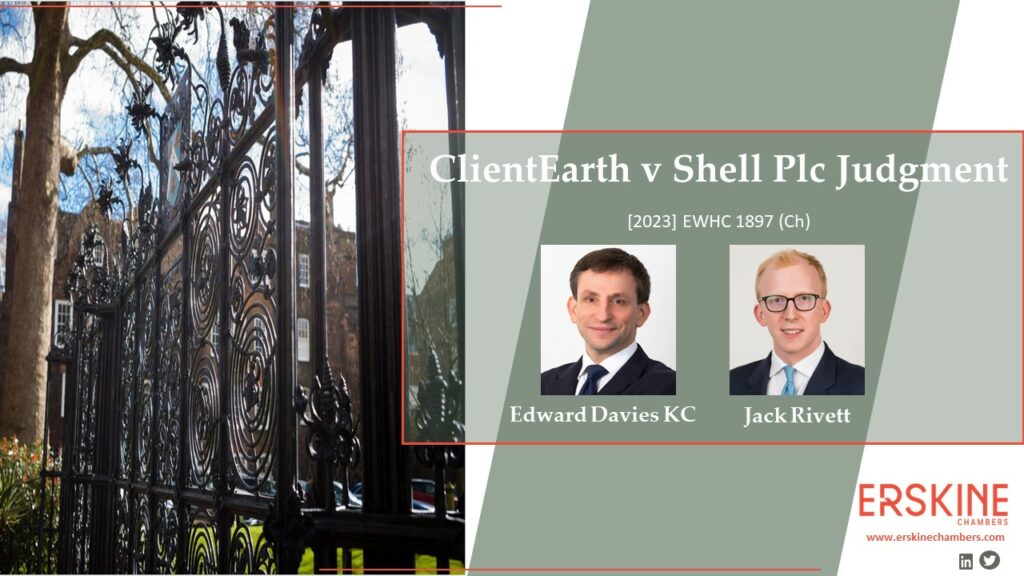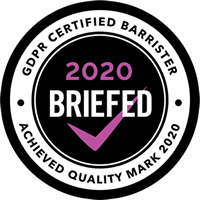
ClientEarth v Shell plc [2023] EWHC 1897 (Ch)
25th July 2023
On 24 July 2023, judgment was handed down confirming the dismissal of ClientEarth’s application for permission to continue a derivative claim on behalf of Shell plc against its directors: [2023] EWHC 1897 (Ch). The judgment followed a hearing requested by ClientEarth under CPR 19.15(10) to reconsider the earlier decision to dismiss its application on the papers: [2023] EWHC 1137 (Ch).
Shell plc was represented by Edward Davies K.C. and Jack Rivett, together with Robert Howe K.C. and Shaheed Fatima K.C., instructed by Slaughter and May.
In summary, ClientEarth’s claim was said to arise out of the directors’ acts and omissions relating to Shell’s climate change risk management strategy. In addition to alleging that the directors had breached their duty to promote the success of the company (s. 172 of the Companies Act 2006) and the duty to exercise reasonable care, skill and diligence (s. 174), ClientEarth alleged that the directors had breached six further duties, which were said to be necessary incidents of the statutory duties when considering climate risk for a company such as Shell. These duties included, for example, “a duty to make judgments regarding climate risk that are based upon a reasonable consensus of scientific opinion.”
In confirming his previous decision that ClientEarth had failed to show a prima facie case for giving permission to continue its derivative claim, within the meaning of s. 261(2), Trower J held, amongst other things, as follows:
- That the so-called incidental duties asserted by ClientEarth were inconsistent with the well-established principle that it is for the directors themselves, acting in good faith, to determine how best to promote the success of the company for the benefit of its members as a whole.
- That ClientEarth’s evidence did not engage with the issue of how the directors are said to have gone so wrong in their decision-making in relation to dealing with climate risk that no reasonable director could properly have adopted the approach that they have, which was a fundamental defect in their case.
- That an independent director acting in accordance with their duty under s. 172 would not do anything other than decline to continue the claim.
- That there was substance in Shell plc’s submission that ClientEarth’s motivation in bringing the proceedings was different from a balanced consideration of what was in the interests of Shell plc, and that ClientEarth had failed to counter the clear inference that it was acting for the single-minded and ulterior purpose of imposing its own views as to the right strategy for dealing with climate change.
For a fuller summary of the judgment, please click here.
The judgment itself is also available via the link below.



